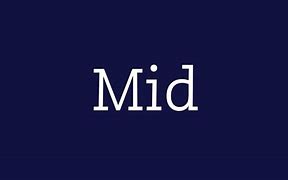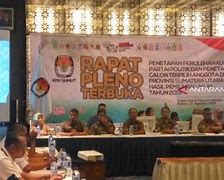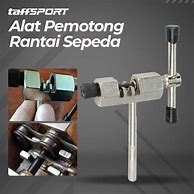
Jambi & Palembang slang
Jambi and Palembang slang mostly involves changing the letter at the end of the word with letter 'o'. However, not all words can be modified to include the characteristic 'o', as this rule applies mostly to words ending with the letter 'a'. Sometimes Palembang use shorter-version of word by erase first syllables, like 'segala' in standard Malay-Indonesian to 'galo'.
Another characteristic pattern of Jambi and Palembang slang involves the addition or replacement of the final letter of a word with 'k'.
Another classic Malay Sumatran dialect also prevailed in most of Sumatran cities, from Palembang to Bengkulu, Jambi and Pekanbaru. These classical Malay words such as nian is used in Sumatran cities instead of sangat or banget (very).
Jakarta including Botabek is the capital city of Indonesia with a population of more than 20 million people. Consequently, such a huge population will undoubtedly have a role in the Jakarta slang evolution. Much of the slang evolved from the Betawi dialect.
Some prominent examples:
The following words are taken from Hokkien (Fukkien) Chinese, and commonly used in transactions.
However, many Indonesians of non-Chinese descent do not know the meaning of the transaction words above, probably with the exception of Goceng due to its usage on KFC Indonesia's advertising on their "Goceng" products, in which all "Goceng" menus are sold at the IDR 5000 price range. Sometimes the word "perak", literally "silver", is used to describe small denominations of currency.
This slang is a code mixing between Indonesian and English. It is named after South Jakarta. Some iconic English words used in this slang include which is, like, literally, sometimes, basically, and some Indonesian words + -ly exp (jujurly). Code mixing with English does not only occur in Jakarta, but also in other major cities in Indonesia.[57]
Negative sentiments on this slang caused this given the name "fart language" (Indonesian: bahasa kentut) by some.[58][59]
In the West Java and Banten region, the main place for Sundanese speakers, there are several words or phrases belonging to the slang language. This diversity of slang has its own peculiarities in each region in West Java Province.
Bandung is the capital city of West Java province with a predominantly Sundanese culture. The Sundanese language has three levels or forms, namely: high (polite), middle class, and low (impolite). Bandung slang often uses the Low Sundanese pronouns along with the many other Sundanese translations of popular Indonesian.
Bogor is a city in the province of West Java with the former Kingdom of Sunda Padjajaran, Bogor slang is Sundanese with its influence from Indonesian language and sometimes uses Sundanese with the word pronounced backwards.
Sukabumi slang the language is a non-standard variety of Sundanese language that is often used in Sukabumi, West Java in the Tipar area, because Widal itself means Tipar.
This Sani or Widal language can also be called slang or slang in the Sundanese dialect, where the pronunciation of the letters in the consonants changes.
For example, the letter G becomes S, J becomes C, and 'ng' becomes 'ny' and so on.
These slangs are shared across Central Java and Yogyakarta where Javanese is predominantly spoken. Like Sundanese which are spoken in Bandung, Javanese also has 3 different set of vocabularies, based on the politeness level. Common people usually talk with a mix between low-Javanese, middle-Javanese, and Indonesian. Some non-Javanese residents added their own dialects to the pot, resulting what is called the Central Java slang
Jogjakarta slang is also known as Basa Walikan, literally means 'Reverse Language' [1].
It is a transformation of Javanese, in which Javanese consonants are switched with one another, as shown below:
With the above rules, the expletive expression Matamu! (which literally means: 'Your Eyes!') becomes Dagadu! (also the name of a clothing brand). The following website automatically performs this transformation: Walikan Translator
Malang slang is inverted alphabetical word (mostly from Javanese and little bit from Indonesian). Commonly known in Javanese as Boso Walikan Malang (Reversed: Osob Kiwalan Ngalam.[60] Meaning: Malang's Reversed language). The slang started appearing sometime in 1949 when the people at Malang's Gerilya Rakyat Kota (GRK meaning City People's Guerilla) needed a form of communication method that is unknown to the occupying Dutch intelligence (Both to the Dutchman, and the recruited natives) while maintaining typical daily conversation. Thus, the idea to reverse Javanese and Indonesian words was born. The goal of the creation of the language is to maintain plan secrecy, prevent leakage of information, and to confuse the enemy.[61] At First, the language was only known amongst the guerillas. Further adding the language's purpose as an identifier whether that person is a friend or foe. But after the Dutch retreated from the city, the language remained and becoming more widespread amongst the people of Malang and its surroundings. In recent years, the technique of reversing words has become more popular nationwide and played a role in creating modern Indonesian slang. Words such as Ngab (From: Abang meaning 'Older Brother'), Sabi (From: Bisa meaning 'Be able to..' or 'Can') or Kuy (From: Yuk meaning 'Let's go') owes credit to Malang's Reversed Language.
Sam = Mas (Older brother. Javanese version of 'Abang' or 'Bang')
Ongis Nade= Singo Edan (the nickname of Arema Cronus F.C.)
Helum= Muleh (Go home)
Ojob= Bojo (Husband/Wife)
Rajajowas= Sawojajar (an area in Malang)
Kera Ngalam= Arek Malang (lit. The kid of Malang. Referring to The People of Malang)
Nawak Ewed = Kawan Dewe (Your own Friend/s)
Silup= Pulis (Police (Although the Javanese word for police is the same as in Indonesian, Polisi. they altered the word slightly to make it less obvious))
As the second largest city in Indonesia and the capital of East Java, Surabaya uses a rougher dialect of Javanese and has a fairly complete list of its own slang. Javanese language originated from the Central Javanese farmland and by the time it reached the coastal area of East Java, it changed from its original polite form into a more impolite version with the creation or further adaptation of many new 'Javanese-style' words and swearwords. One of the most notable Surabaya slang is the word Jancok.
Pontianak slang is influenced by Malay, Teochew and Dayak and sometimes combined with Hakka. It is spoken in the Malay dialect. These slang varieties are spoken throughout West Kalimantan.
Makassarese slang is highly influenced by the native Makassarese dialect and sometimes combined with Chinese accents. The slang, in the end, sounds more informal and 'rude', as going with the tough image of Makassarese people. The possessive word for you (kamu) has three degrees of politeness: -ta (very formal and respectful), -mu (neutral), and -nu (informal). For example:
Meanwhile, the word for you itself is divided into two, the formal ki and the informal ko.
Ini mi? -> 'This one?' Biarkan mi -> 'Let it go' Ko sudah belajar mi? -> 'Have you studied?'. Ko derives from the informal Indonesian word Kau, which stands for 'you'. Sudah dimulaimi itu ulangan? -> 'Has the exam started?', literally, 'Has-been started-the exam?'
Ji is also often used in the end of words. Most often, it means 'only', or used to give a more assuring tone to a sentence.
Di functions more like a question tag, read with a glottal stop at the end, which makes it to be 'dik'
Aside from that, Makassarese more often speak with a heavier accent, mixing many of the Indonesian words with native Makassar words.
Geographic distribution
Indonesian slang language is mostly spoken in urban regions of the Indonesian archipelago. It also spoken in some Indonesian soap operas and animated television series (such as Tukang Ojek Pengkolan or Adit Sopo Jarwo). Variations of slang language can be found from city to city, mainly characterised by derivatives of the different local ethnic languages. For example, in Bandung, West Java, the local slang language contains vocabulary from the Sundanese language, while the slang found in Jakarta tends to be heavily influenced by English or the old Batavian dialect (i.e. the language of the original inhabitants of Jakarta or Batavia as it was known during the Dutch colonial period). For more information relating to the geographic distribution of Indonesian slang and regional influences, please see "Region Specific Slang" below.
Indonesian slang language is not an official language of Indonesia. However, it is claimed as a modified form of the Indonesian language and is widely used for everyday communication and in informal situations. Sometimes it is mixed with formal Indonesian in formal situations, except during state ceremonies, business meetings, and sacred prayers. A number of Indonesians sometimes speak a mixture of Indonesian slang and formal Indonesian in everyday conversation and informal situations.
Indonesian slang generally uses the same pronunciation as standard Indonesian, although there are many influences from regional dialects on certain aspects such as accent and grammatical structure. Loan words adopted from foreign languages (especially European) such as English or Dutch are often transliterated according to the modern Indonesian orthography. For example, the word "please" is often written as plis. Another closely related phenomenon to arise in recent years is the formation of complex nouns or phrases created using a combination of English and Indonesian (slang) in the one sentence. A prime example of this is the phrase "so what gitu loh!", meaning "who cares?!" or quite simply "so what!" with added emphasis from the phrase "gitu loh". Gitu is an abbreviated form of the Indonesian word begitu meaning 'like that/such as', while loh (also spelt lho) is a particle commonly used in slang or conversational Indonesian to show surprise or instigate a warning. In these cases of combined, interlingual phrases, the original spelling (and quite often the pronunciation) of the foreign word(s) are retained. Hence, the English component of the Indonesian slang phrase "so what gitu loh!" remains relatively unchanged as far as spelling and pronunciation are concerned.
The overall structure of Indonesian slang is not all that different from formal Indonesian, although in many cases sentences are simplified or shortened when necessary. The differences between formal and colloquial Indonesian are most evident in vocabulary and grammatical structures (e.g. affixes).
The structure of the Indonesian slang language is mostly derived from formal Indonesian. However, its vocabularies are different story altogether. Indonesian slang vocabularies are enriched by a combination of derivatives or loan words/structures from foreign languages such as Min Nan commonly referred to as Hokkien, English, and Dutch, as well as local ethnic languages such as Batavian, Sundanese, and Javanese. However, in many cases, new words are simply created at random and their origins often quite obscure.
A large proportion of the vocabulary used in Indonesian slang language was developed from formal Indonesian through several methods,[5] most of which are listed below:
Some words are simply loaned from English. For example:
Some words are also loaned from Chinese languages (mainly Hokkien and Mandarin). For example:
Some words originated from the LGBT community (especially among transvestites) usually have word ending -ong. This either come from the pattern of changing the vocal of the penult into [ɛ] and replacing the rime of the ultima with -ong, or entirely different origin. This was also an attempt among LGBT community to alter the words to become more "French-sounding", thus sounding more sexy.[citation needed] For example:
Many words also emerged without following the above rules at all or have their own unique history and/or origin not related to its literal meaning. For example:
Some of these slang words have also evolved into pejorative words.
Many slang modal particles are used in the end of a sentence. Usually, these particles do not directly change the sentence's meaning, in the sense that the truth conditions remain the same. However, they can have other effects, such as emphasizing a sentence, or suggesting hesitancy. They can be used to reinforce the social link between speaker and listener.[56]
For example, the sentence Dia datang (she/he comes) could be modified by one of the following particles:
Particles can also be used to introduce questions. The following examples could both be translated as How could she come?:
Kumpul kebo literally means 'water buffalo-style gathering' or 'gather like cattle'. It originated during the Dutch colonial era and was known as koempoel gebouw, from koempoel 'to gather' and Dutch gebouw 'building', thus the phrase means to live together under the same roof (as an unmarried couple). Confusion has caused this term to be linked with Javanese kebo 'buffalo'. This term basically means that two people in a relationship are living together without being married, i.e. in a domestic partnership or a de facto relationship. To kumpul kebo in Indonesia is considered immoral and sometimes illicit. For these reasons and also those relating to religion, Asian culture, and general ethics, it is often frowned upon in modern Indonesian society to do such a thing.
The 1980s was the era of bahasa prokem. At this time slang language vocabulary was formed by the insertion of the infix -ok-, creating a totally new word. Prokem itself is a prokem word from préman.
Prokem words created by reducing the ultima, then inserting the infix -ok- before the vocal of the penult (which is now become the ultima). If the penult is an open syllable, the penult taking the nearest consonant after it as its coda. If the word is monosyllabic, the infix simply inserted before the vocal. Examples are given below, with the vocal of the penult marked with bold and the nearest consonant marked with underscore:
The word sekolah 'school' was transformed into skokul, from skul, reminiscent of the English word "school". This word slowly become outdated and by the 1990s the word was no longer used, and changed to sekul or simply skul.
Other notable words such as mémblé 'ugly, frowning', kecé 'beautiful, good looking' (from keren cekali 'very cool'), the sentence attribute nih yé, and the exclamation "alamakjan!" all emerged in the same decade.
Much of the slang language created post-2000 originated from the Indonesian LGBT community. The latest method for transforming a word is to take a totally different word which differs in its ultima, rime, or coda. For example, the word mau 'want' is replaced with the word mawar 'rose'. Despite its creativity and originality, this latest form of Indonesian slang can be quite complicated to understand, even to the native Indonesians themselves. For example, "Akika tinta mawar macarena" originates from the sentence written in proper Indonesian "Aku tidak mau makan", which means 'I don't want to eat'.
The abbreviations often used to mask insult, such as kamseupay 'totally lame', abbreviation of kampungan sekali udik payah which means 'really bumpkinish, yokel, lame'.
Slang Bahasa Inggris dan Artinya
Berikut Lister rangkumkan 50 slang bahasa Inggris beserta dengan artinya. Semoga bisa digunakan sebagai referensi kamu dalam percakapan bahasa Inggris ya!
1. Slang bahasa Inggris umum
2. Slang bahasa Inggri untuk memuji dan artinya
3. Slang kasar dan artinya dalam kehidupan
4. Slang dalam dunia kerja
5. Slang singkatan bahasa Inggris
Read more about teen slang:
Is "Mid" Positive or Negative?
"Mid" is generally considered a negative term because it implies that something is not impressive or noteworthy. While it doesn't suggest something is outright bad, it certainly conveys a lack of excitement or enthusiasm, marking it as just adequate or average in its category, without any remarkable qualities.
"Mid" is a slang word for anything that's ... blah. Meh. Eh.
According to Bark.us, a company that decodes teen slang, "mid" is "a term used to describe something that is average, not particularly special, 'middle of the road.'"
Urban Dictionary states that “mid” is: "Used to insult or degrade an opposing opinion, labeling it as average or poor quality.”
😎🪭Gen Z Slang - THAT’S MID 💥 This means something isn’t impressive but isn’t bad either. It’s just mid (short for middle). Did you know you can learn English on a live video call with me for $1 USD PER WEEK?? Subscribe to our Instagram for $5 USD per month so you can watch our 30 minute live classes. These are going to happen every: Tuesday at 2pm EST, which is 10:30pm Iran 4pm Brazil 10pm Russia 8pm Barcelona 11am California 👇 Let me know in the comments a sentence using mid. I can’t wait to teach you!! . . . #inglesonline #dicasdeingles #english #learnenglish #vocabulary #englishteacher #learning #grammar #education #englishlearning #inglês #language #englishlanguage #englishvocabulary #learn #englishgrammar #englishtips #instagram #american #teacher #tips #americanlife #toefl #american #freeenglish
The slang term mid seems to have emerged as a shortening of the word middle.
Mid is used as a slang term in the context of marijuana to refer to “mid-grade” (middle grade) marijuana that is average in potency or is generally of average quality. This sense of mid has been used since at least the early 2000s.
Starting around the early 2010s, mid started to become used in a more general way to refer to average or mediocre things unrelated to marijuana (though this use was mostly still limited to people familiar with its earlier use as marijuana slang).
The general sense of mid to describe things as being average or unimpressive started to become more popular around 2019.
In the early 2020s, mid also became a popular term on TikTok, where it is often used as an insult.
What does the term "mid" mean? How is it used in conversation? Find out with Family Education and learn Gen Z slang today!
"Mid" is a slang term used by Generation Z to describe something that is mediocre or average in quality, neither exceptionally good nor terribly bad. It's often used to express indifference or lack of excitement about a person, event, or thing.
The term "mid" is a shortened form of the word "middle" and has been popularized through social media platforms like TikTok and Twitter. It gained traction as a way for young people to quickly communicate their middle-of-the-road feelings regarding various subjects.
What does mid mean in slang?
Mid means mediocre, boring, or in the middle of bad and good.
Where did 'mid' come from?
According to Malik, "mid" was used by people in cannabis culture.
"Meaning weed that’s not quite top shelf, but not bottom of the barrel either," she wrote. "Perfectly fine in a pinch, mid-grade weed is neutral-positive as it gets the job done for cannabis consumers who are less than discerning."
“Mid” made trouble in September 2021, when professional wrestler Maxwell Jacob Friedman used it to insult people who live in Cincinnati, Ohio, during a match.
“It’s called the Midwest because every single thing in it is mid,” he yelled, including a chili restaurant chain, the Cincinnati Reds baseball team and people who call the region home.
According to Adam Aleksic, aka, the “Etymology Nerd” as he’s known on TikTok, the word “mid" will get midder with time.
“We will almost definitely see ‘mid’ become even more negative because it’s a very frequent theme in etymology for common or average things to become bad,” Aleksic said in a TikTok video.
Aleksic pointed to the origins of words like “trivial” which once defined “commonplace” and “vulgar” meant “pertaining to the common people,” he said.
"Mid" is a slang word for anything that's ... blah. Meh. Eh.
According to Bark.us, a company that decodes teen slang, "mid" is "a term used to describe something that is average, not particularly special, 'middle of the road.'"
Urban Dictionary states that “mid” is: "Used to insult or degrade an opposing opinion, labeling it as average or poor quality.”
Region specific slang
Medan is the capital of North Sumatra Province. Most of the slang from Medan are heavily influenced by Malay, Hokkien and Karo language. For example, "bapa" for "father", "nande" for "mother", "kedé" for "shop", "tutup lampu" for "turn off the light", "buka radio" for "turn on the radio". Another example of Medan slang is by adding "punya" at the end of the sentence. For example, "mobil aku punya" for "my car". They also have the tendency to confuse between e /ə/ and é /e/, partially due to the fact that most of nearby Batak languages lack the former vowel, the schwa.
Slang word juga banyak ditemui di tes IELTS
Walau slang bahasa Inggris digunakan secara informal, namun slang word juga banyak ditemui di ujian IELTS.
Untuk tes IELTS slang word bisa ditemui di sesi speaking dan juga writing.
Dalam ujian IETS penggunaan slang word bisa menjadi salah satu penilaian karena dapat menampilkan kekayaan kosakata bahasa Inggris yang kamu kuasai.
Semakin dekat bahasa Inggrismu menyesuaikan native speaker maka kemungkinan nilai tinggi juga bisa didapatkan.
Namun penggunaan nya juga harus melihat siapa orang dalam percakapan dan jenis situasinya.



